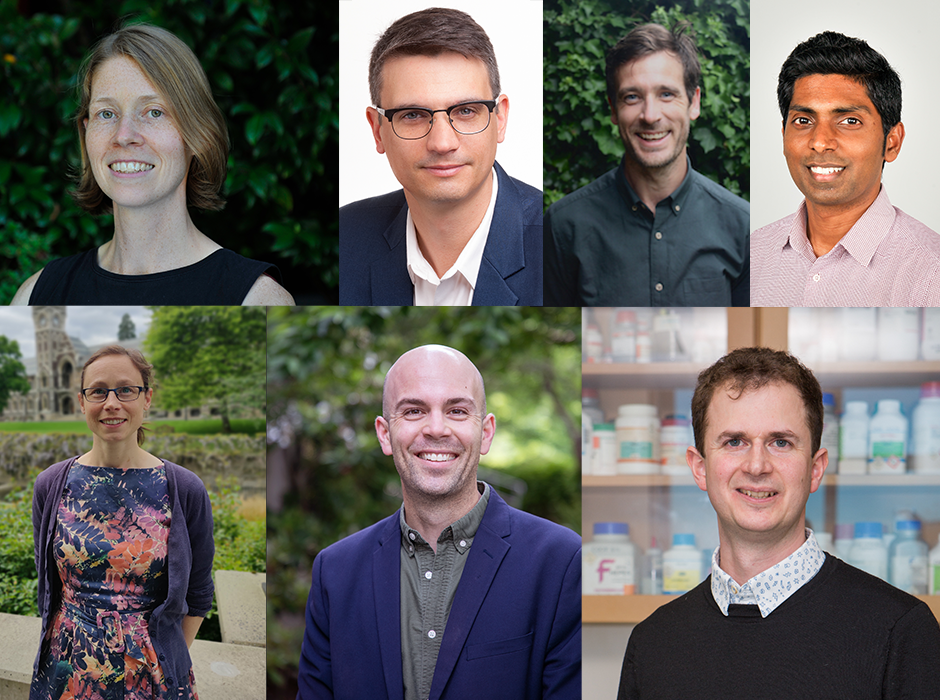
Clockwise from top left: Dr Kimberley O’Sullivan, Dr Stephen Young, Dr Matt Jenkins, Dr Hemakumar Devan, Dr Simon Jackson, Dr Matthew McNeil and Dr Sara Miller.
Areas ranging from pain management to the rise of pseudolaw are the focus for this year’s top Otago early career researchers.
The Early Career Awards for Distinction in Research, announced last month, went to Dr Hemakumar Devan (Department of Medicine, Wellington), Dr Simon Jackson (Department of Microbiology and Immunology), Dr Matt Jenkins (Department of Psychological Medicine, Wellington), Dr Matthew McNeil (Department of Microbiology and Immunology), Dr Sara Miller (Department of Chemistry), Dr Kimberley O’Sullivan (Department of Public Health, Wellington) and Dr Stephen Young (Faculty of Law).
Each award recipient receives a $5000 grant towards their research and membership of the Otago ECR Forum, which advocates for and promotes research, and facilitates networking and collaboration among early to mid-career researchers at Otago.
Deputy Vice-Chancellor Research and Enterprise Professor Richard Blaikie, who chairs the awards selection panel, says the awards provide an opportunity to formally recognise the dedication and innovation of Otago’s top early career researchers.
“Through their work, leadership in their fields and engagement with their communities, these talented researchers are clearly committed to making a difference to people’s lives.”
Dr Hemakumar Devan (Department of Medicine, Wellington)
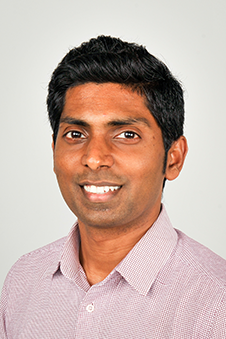
Dr Hemakumar Devan
‘Nothing about us without us’ underpins Dr Hemakumar Devan’s approach to addressing health inequities and improving health outcomes for people with persistent pain and their whānau.
Dr Devan is a clinical academic in pain management, based in Wellington. Along with his Māori community partner, Cheryl Davies, he is co-leading an HRC-funded research project to develop and implement a story-based, whānau-focused, opioid tapering intervention for people with chronic non-cancer pain.
“A coalition of community, clinical and lived experience expertise is a unique aspect of this project. People living with chronic pain are experts - they live with their pain 24/7 and contribute meaningfully to research with this expertise.”
In the past five years, Dr Devan has secured more than $3.5 million in funding, published 40 peer-reviewed articles, and delivered more than 50 national and international presentations in pain management.
“I see this award as a timely recognition and impetus for our ongoing efforts to improve the lives of one in five New Zealanders living with chronic pain and their whānau,” he says.
Dr Simon Jackson (Department of Microbiology and Immunology)
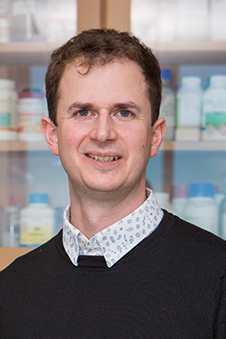
Dr Simon Jackson
Dr Simon Jackson is a molecular biologist whose research takes a multidisciplinary approach, spanning bioinformatics, bacterial genetics and molecular biology.
His focus is understanding how bacterial immune systems protect their hosts against bacterial viruses (bacteriophages) and the use of bacteriophages as therapies against bacterial pathogens.
Dr Jackson has built a strong and respected international profile in the field of phage-host interactions and microbial genetics. He received the 2017 Illumina Emerging Researcher Award as the top early-career molecular biologist in New Zealand, and has received a range of grants and fellowships, including recently being awarded a Sir Charles Hercus Fellowship from the Health Research Council.
Dr Matt Jenkins (Department of Psychological Medicine, Wellington)
Research should start with the voices of the people you’re trying to help, says Senior Research Fellow Dr Matt Jenkins.

Dr Matt Jenkins
Dr Jenkins is bringing his background in physical education and psychology to his research into helping those living with serious mental illnesses stay physically healthy. His latest project is co-designing a healthy lifestyle programme for young people experiencing psychosis.
“We need to understand their lived experiences so we can find the best way to support them. It’s all about celebrating strengths, rather than having a deficit-based approach.
“If people take the time to share their stories then we need to try to drive positive change.”
He says receiving the award will help promote and fund the work he is doing.
Dr Jenkins has been an author on 24 publications, seven as first author, and has presented his research widely, including overseas.
Passionate about community engagement, he has built an extensive research stakeholder community and uses different ways to reach people and raise awareness, including a mental health bike tour and a podcast series.
Dr Matthew McNeil (Department of Microbiology and Immunology)
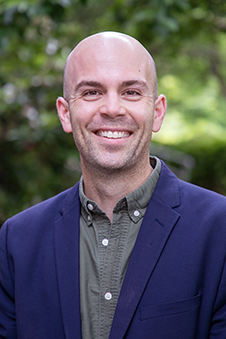
Dr Matthew McNeil
Dr Matthew McNeil’s research investigates the mechanisms that allow Mycobacterium tuberculosis, the agent of tuberculosis, to survive and become resistant to antibiotics.
“Mycobacterium tuberculosis continues to be a global health problem. Central to this problem is the ability of M. tuberculosis to both withstand antibiotic treatment and then develop high level antibiotic resistance.”
Dr McNeil’s work is internationally recognised and he is involved in internationally collaborative projects. His work is currently funded by a Sir Charles Hercus Fellowship from the Health Research Council (HRC), and two HRC project grants.
Prior to joining the University of Otago in 2020, Dr McNeil held post-doctoral positions at the Infectious Disease Research Institute (Seattle, USA) and Centre National de la Recherche Scientifique (Gif-sur-Yvette, France).
“This award will help continue our work to develop therapeutic strategies that increase the activity of existing antibiotics, prevent the emergence of drug resistance and improve clinical outcomes.”
Dr Sara Miller (Department of Chemistry)
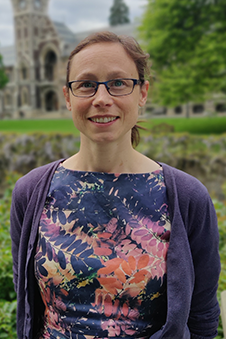
Dr Sara Miller
Analytical-physical chemist Dr Sara Miller graduated with her PhD from Otago in 2014 and since then has developed her expertise across several independent research streams in analytical spectroscopy.
Currently a Senior Research Fellow, Dr Miller’s research in vibrational spectroscopy coupled with multivariate analysis has applications to a wide variety of materials and complex systems including pharmaceutics, hard and soft tissues, and primary produce. A more recent focus of research has been in the field of medical diagnostics with particular emphasis on multi-spectroscopic approaches for diagnosis of gastrointestinal illnesses.
Dr Miller has also led two projects funded by Marsden Fast-Start and MBIE Smart Idea grants and is a Principal Investigator in Te Whai Ao - Dodd-Walls Centre of Photonic and Quantum Technologies.
In 2022, she was the inaugural recipient of an Early Career Researcher Award from the New Zealand Institute of Chemistry.
“Thank you to the fantastic people I have worked with at Otago University, Te Whai Ao – Dodd-Walls Centre and abroad for the opportunities and support provided,” Dr Miller says.
She is looking forward to continuing these collaborations following her move to Flinders University to start an academic position later this year.
Dr Kimberley O’Sullivan (Department of Public Health, Wellington)

Dr Kimberley O’Sullivan
Dr Kimberley O’Sullivan’s research is about understanding the health and wellbeing impacts of people being unable to afford or access enough electricity to meet their needs at home.
“Being stressed and getting sick from having to choose between heating or eating is causing a lot of harm in Aotearoa. We can do better to improve housing conditions and get the energy sector to deliver for households.”
Dr O’Sullivan says she loves the work she does and is very grateful to her team, who have helped shape her and her research.
“I've been really lucky to have had the best mentorship and support from Distinguished Professor Philippa Howden-Chapman and He Kāinga Oranga /Housing and Health Research team that I joined as a Master's student.
“We have a team culture of building strong relationships with communities and policymakers, and throughout the sectors we work in. This enables our research to help achieve the outcomes our communities want - homes their whānau can be healthy in.”
Dr O’Sullivan is delighted to receive the award, which she will use to help support new student projects and continue this cycle.
Dr Stephen Young (Faculty of Law)
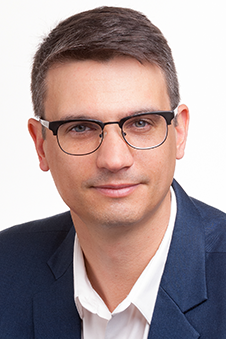
Dr Stephen Young
“There’s a lot we can do to make society better through how we approach law,” says Dr Stephen Young.
Since joining Te Kaupeka Tātai Ture Faculty of Law in 2019, Dr Young has produced outstanding publications, collaborated with researchers abroad and worked to facilitate research excellence within the Faculty.
His research areas involve the intersection of Indigenous peoples and law, human rights, and duties and obligations, drawing from critical and social theories. He has recently started a research collaboration to study the rise of pseudolaw and the sovereign citizen movement in Aotearoa New Zealand.
On receiving this Otago Early Career Award for Distinction in Research, he says, “It’s wonderful. It’s really nice to be recognised for this work and to be here and be inspired by other people I am working with. This Faculty is full of people that do excellent publications and work, so I have learned a lot from them, and I credit them a lot with helping flesh out ideas and inspiring me to write.”